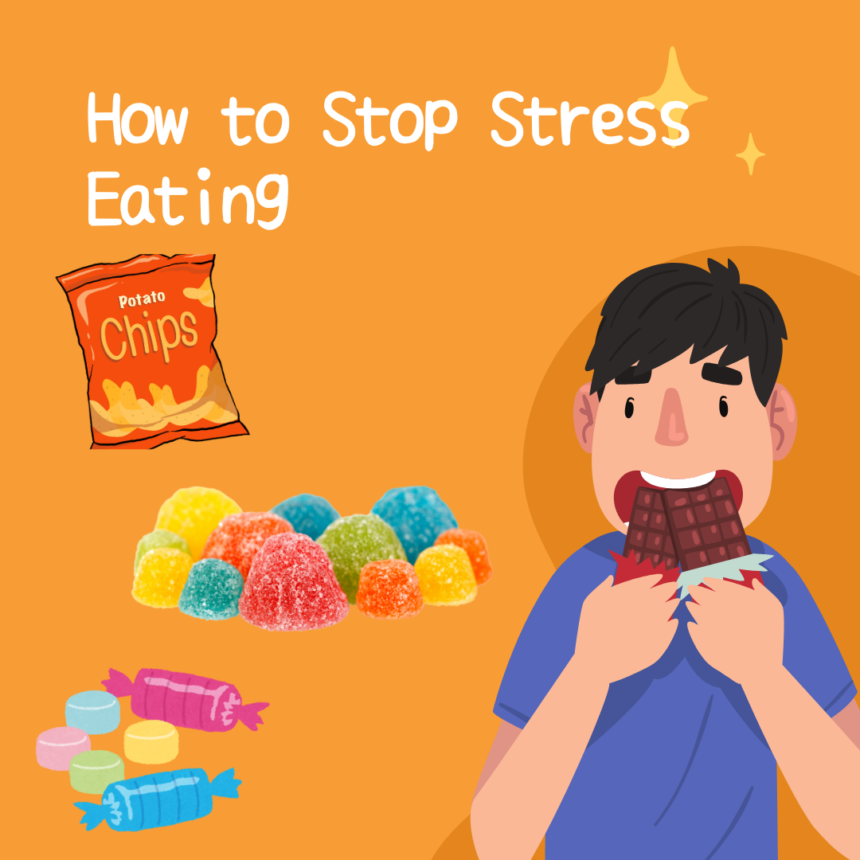Stress eating occurs when people eat not because their hunger compels them to, but because they feel stressed; anxious, or upset. To comfort them, they often turn to foods such as chips, candy, or anything that feels quick and satisfying. When these do make one temporarily feel better, they won’t really address the problem causing the stress, and in the long run, they may worsen it.
Why We Stress Eat?
There are different reasons that trigger stress eating, and here is a small sampling of the numerous possible categories of triggers.
- Job Stress: Deadlines, projects, and meetings may sometimes pile on that make you feel like reaching out for something comforting.
- Personal stress: Relationship issues, family problems, or financial worries may just make one feel so overwhelmed and difficult to not want to reach out for some munchies.
- Boredom or Isolation: Eating can sometimes feel like a quick fix for those feelings when boredom or being alone sets in.
- Exhaustion: When tired, the body wants quick energy, often a high-calorie snack, to fulfil that energy craving.
The Downsides of Stress Eating
Although stress eating appears as a remedy, it is most likely to leave the person feeling worse afterward. Here are some reasons.
- Temporary relief: Eating when stressed offers immediate relief but is short-lived. It does nothing to address the source of stress and leads to guilt later on.
- Effects in the Long Run: Eating because of stress leads to weight gain, health issues such as diabetes or heart problems, and an unhealthy association with food over time.
Healthy Alternatives to Stress Eating
Instead of grabbing a bag of chips, discover much healthier foods that will satisfy cravings while nourishing your body:
- Nuts and seeds: Just a small handful of almonds, walnuts, or sunflower seeds may provide your crunch craving, along with healthy fats, protein, and fiber. They will keep you satiated and also provide healthy and energizing energy levels without the drop that sugar usually gives.
- Yogurt: Indeed, yogurt is thick and creamy yet filling; rich in both protein and probiotics, all of which, one way or another, aid digestion and touch mood levels. To make it even better, add honey or fresh fruits, if you like. This will definitely soothe cravings significantly healthier.
- Fruits: Fresh fruits like an apple, banana, or a handful of berries are naturally sweet. It can serve to kill your sugar cravings. They are also packed with vitamins and fiber, making them good for your body and not leaving you feeling heavy afterward.
- Peanut Butter: Unbearably tantalizing and satisfying, almost like a frosty, buttery experience. Suitable for stuffing in slices of apple or whole-grain crackers for an awesome snack NOT with any fat and protein by its side.
- Whey Protein: A protein shake is filling and effective in muscle maintenance; when a person is hungry and stressed, it can be one lovely way to satiate cravings without overindulging in food.
- Protein Bars: Protein bars are healthy yet weight-efficient to keep the stomach filled and avoid the chips.
Managing Stress Without Food
Instead of turning to food when stress hits, try these simple stress-management techniques that don’t involve eating:
- Exercise: A quick walk or a workout can work wonders to reduce stress. It releases feel-good endorphins and helps clear your mind.
- Deep Breathing: When you feel overwhelmed, try taking a few deep breaths. This can calm your nervous system and reduce anxiety.
- Journaling: Writing down your thoughts can help release emotional tension and bring clarity.
- Talk to Someone: Sometimes, just talking things through with a friend or family member can help you feel better and prevent you from turning to food.
Building Healthy Habits for the Long Run
Overcoming stress eating isn’t a quick fix, but small changes can make a big difference. Here’s how to make those changes last:
- Set Small Goals: Start by replacing one unhealthy snack with a healthier one each week. Small steps will lead to lasting habits.
- Address the Emotional Root: If stress eating is tied to deeper emotional issues, consider talking to a therapist or practicing mindfulness to work through your feelings.
- Celebrate Progress: Celebrate the small victories along the way. Each step you take toward healthier habits is worth recognizing.
Conclusion
Stress eating can be tough to break, but it’s completely possible with the right approach. By understanding your triggers, choosing healthier alternatives, and managing stress in ways that don’t involve food, you can take control of your habits. Remember, it’s okay to slip up now and then, but with time and patience, you’ll create a healthier relationship with food and find more ways to cope with stress without reaching for the chips. They will keep you satiated and also provide healthy and energizing energy levels without the drop that sugar usually gives.
For more health related blogs click here.








